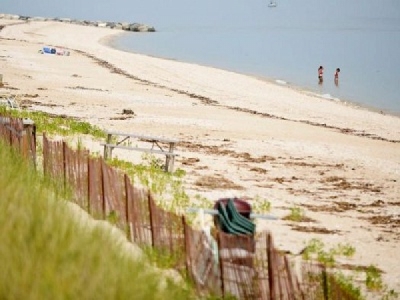
Posted on December 5, 2016
By Valerie Bauman, Newsday
Asharoken Mayor Greg Letica notified village residents this week that they will be surveyed in what will probably be the decisive up or down vote on a proposed multimillion-dollar U.S. Army Corps of Engineers beach restoration project.
The decision follows the village’s receipt of a Nov. 22 letter from state Department of Environmental Conservation officials saying they believe the Army Corps won’t complete the project’s feasibility study unless and until the village provides written support for going through with the project and related corps mandates.
Terminating the feasibility study, years in the making and estimated to be six months from completion, would kill the project.
Asharoken officials have objected to the Army Corps’ demand for a commitment before the village receives the completed feasibility study, which will determine the project’s final scope, cost and impact on village residents.
The Village of Asharoken sits on a long, narrow strip of land on the North Shore of Long Island in the Town of Huntington. Its sand dunes have eroded, leaving the village vulnerable during the next major storm.
With a population of about 650 people and an annual budget just above $2 million, the village’s share of constructing the project would be between $2.3 million and $2.5 million — an amount that does not include mandatory maintenance costs over the next five decades.
The Army Corps has agreed to switch from its previous “tentatively selected plan” to an all-sand alternative that earlier this year the village had stated it preferred, according to the DEC’s letter.
That plan would cost about $2.1 million less than the $23.7 million version the Army Corps had selected, which also would have added or restored three groins — structures intended to reinforce the beach against erosion, according to the Army Corps’ draft feasibility report released in November 2015.
The DEC asked the village to provide a letter of support by Dec. 7.
Letica responded to the DEC in a Nov. 28 letter, saying the village could not meet the deadline because village officials would first need to obtain resident input “by a poll and a public hearing.” After that, the letter continued, “the village will do its best” to have a response to the DEC after the Jan. 10 village trustees meeting.
Letica told residents in an email Monday that they will receive the survey “in the next couple of weeks.”
The letter of support must include the village’s commitment to a provision that has long been controversial among locals: mandatory public beach access on some property owners’ private land.
Long-term local resistance to public access requirements has led the Army Corps to have concerns about the likelihood of the village going through with the project if the feasibility study is completed.
Army Corps officials declined to comment Monday; however, Clifford Jones, chief of the planning division for the corps’ New York district, told Newsday in September: “We don’t do feasibility studies just for the sake of feasibility studies.”
The village also would be asked to agree to several other mandates introduced in the past six months, including: construction of parking areas at every half-mile of the 2.4-mile project area and a commitment to obtain any required real estate by any means necessary — before it has been identified in the feasibility study.
The DEC has committed more than $1.1 million toward the study. Federal legislation passed in the aftermath of superstorm Sandy made all of the study’s costs since then 100 percent federally funded.
State officials say the village must pay a 30 percent share of the pre-Sandy funding, or about $330,000, whether or not the study is completed.
Source: Newsday





